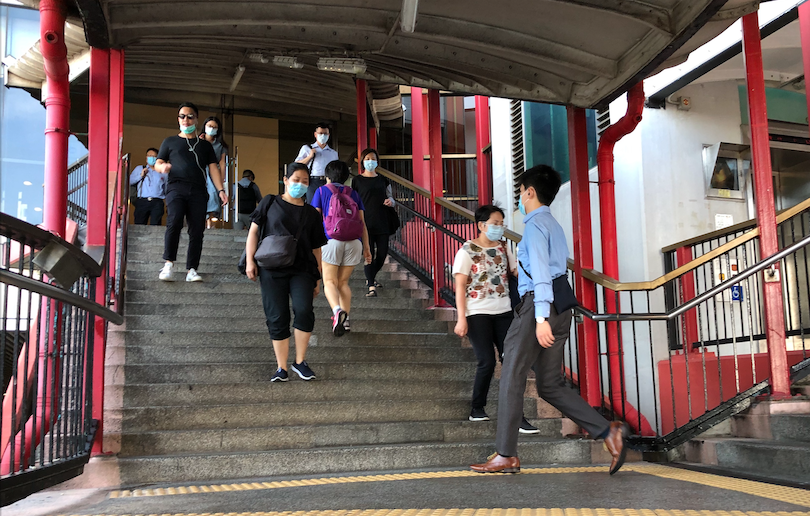Hong Kong reported 48 more coronavirus cases on Monday, a day after authorities announced sweeping restrictions in light of the dramatic spike in cases. 40 are patients with no recent travel history.
Among the figures, 16 are linked to previously confirmed infections. They include the owner of a dim sum restaurant in Sheung Wan where three related cases have been confirmed, and the Filipino domestic helper of a 35-year-old male who earlier tested positive.
Another resident is also confirmed to have contracted the virus at an elderly care center in Wong Tai Sin. Over 30 cases, including staff who work there, have been linked to the center.
Authorities said they were unable to trace the source of infection for 24 patients—representing half of the cases confirmed today.
As in previous days, a number of infections are of patients living or working in Kowloon East, but other districts are also recording infections including Yuen Long, Tin Shui Wai and Sai Kung.
Amid the exponential rise in virus cases, the government announced a number of restrictions yesterday, including banning dine-in services at restaurants after 6pm and mandating the wearing of masks on public transportation. Gyms and karaoke lounges will also close for a week.
While these are the strictest policies authorities have implemented since the local outbreak began in January, some public health experts say more can still be done.
Commuting to and from work on public transportation during rush hour carries a high risk of the virus spreading, David Hui, an infectious disease expert at the Chinese University of Hong Kong, said in a morning interview with Commercial Radio.
He said that the government should take the lead in ordering civil servants to work from home to encourage private companies to follow suit.
Ho Pak-leung, a microbiologist at the University of Hong Kong, advised authorities to forbid dine-in services at cha chan tengs, or local-style restaurants that tend to be more cramped. A considerable number of recent cases have been linked to cha chan tengs.





Reader Interactions